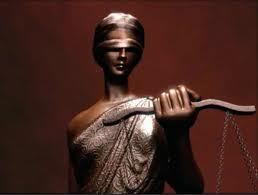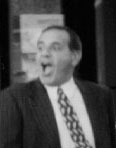Law Offices of
Susan G. Kellman
mercy bears richer
fruits than strict justice
-
Abraham Lincoln

United States v. DiMaria

Lenny Takes A Mopery Plea
July 3, 2008Gangland | By Jerry Capeci
Little Nick’s longtime partner-in-crime, capo Leonard DiMaria won’t be on hand as he was during the seven-month long Gotti trial – and two subsequent cases he had with Corrozo – to provide quick asides and wisecracks to ease the tension and tedium of witnesses and attorneys alike.
From his federal lockup, DiMaria, who opted for a plea bargain to two Vallaro-related extortions and faces about five years behind bars, sent word out to Gang Land through his attorney Susan Kellman that despite having pled guilty to what he called “felonious mopery,” he was feeling “marvelous.”
There Goes Another Capo
June 1, 1998Gangland | By Jerry Capeci
As John Gotti completes his sixth year at Marion Federal Penitentiary, energized federal officials are keeping the pressure on the tattered remnants of his crime family. Capo John (Jackie Nose) D'Amico will soon be hit with federal racketeering charges and added to the case pending against Gotti's son and the acting boss of the Gambinos - John A. (Junior) Gotti.
D'Amico would be the 18th Gotti capo charged with state or federal crimes since the Dapper Don turned in his tailor-made suits for prison garb after he was convicted on federal murder and racketeering charges and sentenced to life on June 23, 1992.
D'Amico (left) has reputedly served on a three-capo committee that helped Junior Gotti carry out his father's wishes from prison. He is expected to be charged specifically with bookmaking and loansharking.
The capo's problems are an open secret. His lawyer, James DiPietro, told Gang Land that his client is lodged at a motel near the federal courthouse in White Plains to get a jump on things.
"We're not running away from this," he said. "We'll answer the charges in court when they're filed."
Nailing D'Amico has been a priority for the feds since Gotti anointed him as his man-Friday. He began bouncing with the once-Teflon Don shortly after Gotti beat a federal racketeering charge in 1987. D'Amico was seen constantly with Gotti. He would accompany him to the Ravenite Social Club, to Upper East Side restaurants, night clubs and boxing matches at the Felt Forum.
He was a daily spectator at Gotti's 1992 trial and a spin doctor who blasted his boss's enemies, notably federal prosecutors and turncoat underboss Salvatore (Sammy Bull) Gravano, and lavished praise on Gotti, which bordered on unabashed hero worship.
"A (man like) John only comes along once in a life. They broke the mold with John. He's original," D'Amico said during one break. "John had two things going for him, he was loved and feared. He's the only person I've seen with both. You call it charisma. He has that. But love and fear was what counted. People don't cross a man they love and fear."
Gravano, once Gotti's trusted right-hand-man-in-crime, "makes Charles Mansion look like an altar boy," said D'Amico, warning reporters that the feds would try to make Gravano out to be a saint when he testified. "They're gonna try and make him look like a priest. By the time he gets on the stand, they'll have made him into a monk."
Last month, the Little Italy building that housed the infamous Ravenite Social Club, where D'Amico spent many a night, and where Gotti got caught with his foot in his mouth, was sold for a cool $1 million. The five story building, which has 18 apartments, went for more than twice its initial $475,000 appraisal in a newly chic area of Manhattan that realtors have dubbed Nolita - North of Little Italy. "The area's really hot," said Wilbur Gonzalez of Douglas Elliman Real Estate, which brokered the deal.
The new owners -- they laid out $1,030,000 in cash -- declined to discuss their plans for the building. But sources say there are plans to renovate the first floor. which includes the former two-room clubhouse an apartment, into a restaurant-bar.
Tenants in the building told my Daily News colleague Helen Peterson that they knew little about the deal, the new landlords, or their plans.
"I hope the new guys who take over the building do well. More power to them -- just as long as they don't kick me out. I'm a good tenant," said Christopher Todd.
Longtime tenant Madeleine Smyth summed it all up: " I think the past is the past and it is going to totally change. I think that social club is dead."
The Manhattan real estate market may be booming, but that's not helping Nicholas (Little Nick) Corozzo (left) and Leonard DiMaria, two of the 18 Gotti capos to bite the dust. Seems the two Brooklyn based mobsters have their money tied up in hard-to-sell real estate in the Ocean-Hill Brownsville section of Brooklyn, Middletown, NY, and Mastic, Long Island, according to their lawyers.
Their reputed real estate hassles has Brooklyn federal prosecutors upset and complaining that the wiseguys are trying to renege on a deal to pay a $500,000 fine before they are sentenced for racketeering later this month.
Corozzo, who owns a Brooklyn building appraised at $275,000, had a deal to sell it for $215,000, but it fell through, lawyers Gerald Shargel and Joseph Corozzo told Brooklyn Federal Judge Frederic Block last month.
DiMaria is trying to sell property next to an industrial area in Mastic, L.I. — but it isn't worth as much as he figured.
"He thought he was buying in the Hamptons. He's a Brooklyn boy," said his lawyer Susan Kellman, who added that there have been no takers for DiMaria's Middletown property either.
Corozzo and DiMaria (right) pleaded guilty to racketeering last year in a deal that calls for 10-year prison terms. They and mobster Louis (Brother) Scida, who also pleaded guilty to racketeering, agreed to fork over $500,000 before official sentencing -- with another $1 million to follow.
After much back and forth between the lawyers and assistant U.S. attorney David Hennessey, Block told the prosecutors and the defense lawyers to work out an agreement and get back to him. The oft-adjourned case is now set for June 11.
COUNTERFEIT JUSTICE
Mar. 10, 1997Gangland | By Jerry Capeci
IT was bright and sunny in Ft. Lauderdale last Tuesday but Gambino capo Lenny DiMaria would much rather have been back home in cold, gray and snowy New York.
With lawyer Susan Kellman at his side, DiMaria strode into the federal courthouse on East Broward Boulevard with a shopping bag full of licensed sportwear and a smile on his face for what he knew would most likely be a losing fight.
"I think we got them on the law, but they," DiMaria told Gang Land, pointing toward the federal prosecutor and three FBI agents gunning for him, "got me listed as a bigtime gangster from New York, so I don't know if the law will prevail."
DiMaria, who is awaiting federal racketeering trials in New York and in Florida, was there for a bail revocation hearing.
Since late January, when the feds in New York tacked on racketeering charges to those already filed in the Sunshine State, DiMaria has been confined to his Brooklyn home, with an ankle bracelet monitoring his movement and a wiretap monitoring his telephone calls.
DiMaria had been free on bail on the Florida charges when the New York charges were lodged. Citing the new charges, New York prosecutors tried to revoke his bail and send him to jail, but a New York judge ruled that
house arrest would suffice. But Florida prosecutors took another shot at him and claimed he violated his bail terms by commiting crimes in New York, specifically, conspiring to traffic in $600 in counterfeit Super Bowl sweatshirts.
He contends the sweatshirts were not counterfeit, but poor imitations, with no official licensing markings or tags that are normally affixed to sportwear licensed by the National Football League, the National Basketball Association or Major League Baseball.
Kellman introduced into evidence a New York Knicks warmup jacket, a Green Bay Packers jersey and a New York Yankees T-shirt which, unlike the sweatshirt the feds produced, all had official tags and markings.
Kellman had more goodies in her bag, but Judge Barry Seltzer indicated he had seen enough.
Kellman said DiMaria might have some civil liability, but that was doubtful, because an NFL official had said in a letter that DiMaria's sweatshirt had no tags, was a poor imitation and that the colors of the Green Bay Packers and the New England Patriots' helmets on the shirt were incorrect. Besides, she said, bail had never been revoked in a federal case for allegations not involving drugs or violence, and DiMaria was not a threat to flee.
There's always a first time, as DiMaria feared. Seltzer ruled that the white Super Bowl sweatshirt - with no licensing tags and the manufacturer's label missing - constituted "probable cause" of a crime and revoked DiMaria's bail.
As the deputy U.S. Marshals in the courtroom stood to take him away, Seltzer gave DiMaria a 24-hour reprieve and allowed to fly back to New York and surrender to prison authorities there.
"At least the airline ticket won't go to waste," said DiMaria, who carefully gathered up his official sportswear while deciding whether to appeal Seltzer's sour ruling.
GOTTI IS AQUITTED IN CONSPIRACY CASE INVOLVING THE MOB
By LEONARD BUDER | March 14, 1987 | New York TimesJohn Gotti was acquitted of Federal racketeering and conspiracy charges yesterday in the Government's first major setback in its recent assault on organized crime...more